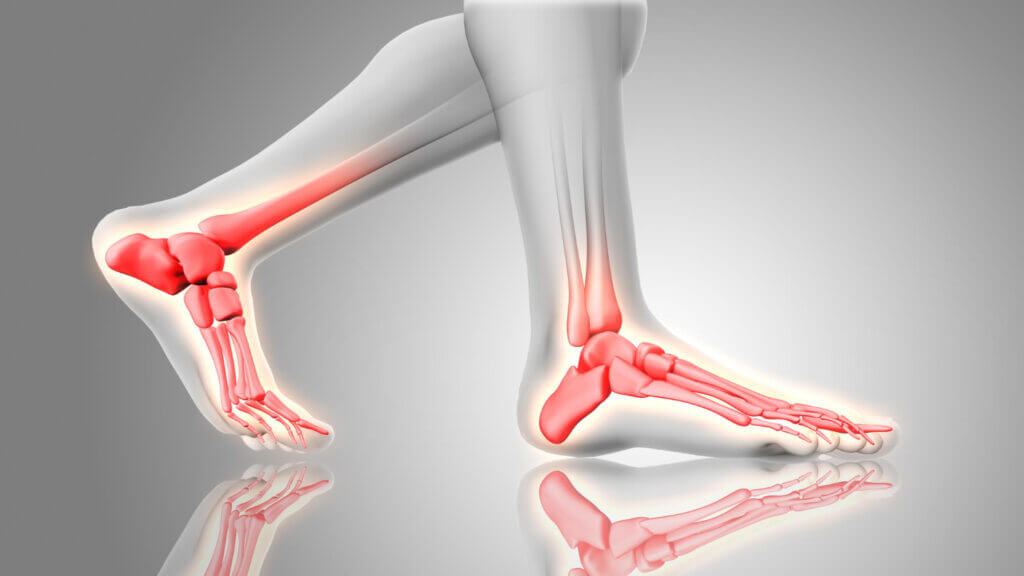Marathon running has become increasingly popular in recent years, with people of all ages and fitness levels participating in this long-distance race. While completing a marathon can be an exhilarating experience, it’s important to consider the potential risks associated with this type of endurance event.
The question “Is running a marathon bad for you?” has been asked by many, and it’s a valid concern. In this article, we’ll explore seven potential risks that you need to know about before embarking on a marathon training and running journey.
By understanding these risks, you can better prepare yourself and make informed decisions about your health and well-being.
Table of Contents
Is Running a Marathon Bad for You?

Running a marathon can have both positive and negative effects on the body. While it can improve cardiovascular health, boost mood and mental well-being, and promote weight loss, it can also pose several risks to health.
Some potential risks of running a marathon include overuse injuries, dehydration, heat stroke, hyponatremia, cardiovascular issues, and mental health issues. These risks can be reduced through proper hydration strategies, adequate preparation, and careful attention to the body’s signals.
While running a marathon is not necessarily “bad” for you, it is essential to understand and address the potential risks associated with this intense physical activity. Consult with a healthcare professional before starting a marathon training program, and take steps to prepare and prevent potential health problems that can arise from marathon running.
Risk #1: Overuse injuries

Marathon training and running require a lot of physical effort, and it’s not uncommon for runners to experience overuse injuries.
What are overuse injuries?
Overuse injuries happen when repetitive stress is placed on the same part of the body without allowing enough time for recovery. These injuries can cause pain and discomfort, and they can significantly impact your ability to train and run.
Common types of overuse injuries associated with marathon running
Common types of overuse injuries associated with marathon running include shin splints, runner’s knee, plantar fasciitis, and Achilles tendinitis. Shin splints cause pain in the lower legs, while the runner’s knee causes pain around the kneecap. Plantar fasciitis affects the bottom of the foot, and Achilles tendinitis affects the back of the heel. All of these injuries can be debilitating and painful, and they can take a long time to heal.
Prevention and treatment strategies
Fortunately, there are several strategies you can use to prevent overuse injuries during marathon training and running. Here are a few tips to keep in mind:
- Start Slowly: When starting your marathon training, begin with shorter distances and lower-intensity runs. This will help your body adjust to the demands of marathon running gradually, and it will help prevent overuse injuries.
- Cross-Train: Cross-training is an excellent way to give your body a break from running while still staying active. Try activities like swimming, cycling, or yoga to help build strength, flexibility, and endurance.
- Stretch and Warm-Up: Before each run, make sure to stretch and warm up properly. This will help prepare your muscles for the demands of running and reduce the risk of injury.
- Wear Proper Shoes: Wearing proper shoes that fit well and provide adequate support is essential for preventing overuse injuries. Make sure to invest in a high-quality pair of running shoes that fit well and support your feet.
- Rest and Recover: Rest and recovery are critical components of marathon training. Make sure to take regular rest days and give your body time to recover after each run.
In addition to these strategies, it’s also important to listen to your body and address any signs of pain or discomfort immediately. If you experience persistent pain or injury, consult with a healthcare professional who specializes in sports medicine. With proper awareness and preparation, you can minimize the risk of overuse injuries during marathon training and running.
Risk #2: Dehydration

Dehydration is a condition that occurs when your body loses more fluids than it takes in. It can lead to a variety of symptoms, such as fatigue, dizziness, dry mouth, and even fainting. In severe cases, dehydration can be life-threatening. Unfortunately, dehydration is a common risk associated with marathon running. In fact, studies have shown that up to 75% of marathon runners experience some level of dehydration during the race.
How marathon running can lead to dehydration
One of the primary reasons why dehydration is so prevalent among marathon runners is the nature of the race. Marathons typically take several hours to complete, which means that runners are exposed to the sun and heat for extended periods of time. Additionally, marathon runners often sweat profusely, which can lead to a significant loss of fluids.
Strategies to prevent dehydration during a marathon
Fortunately, there are several strategies that marathon runners can employ to prevent dehydration. The most important strategy is to stay properly hydrated before, during, and after the race. This means drinking plenty of fluids in the days leading up to the marathon, as well as during the race itself. Experts recommend drinking approximately 16-20 ounces of fluids 2-3 hours before the race, and then 6-8 ounces of fluids every 20-30 minutes during the race.
It’s also important for marathon runners to choose the right types of fluids to drink. Water is a good option, but it’s not always enough to replace the electrolytes lost through sweating. Many marathon runners choose to drink sports drinks that contain electrolytes, such as sodium and potassium, to help replenish the body’s fluids and nutrients.
In addition to staying hydrated with fluids, marathon runners should also take steps to stay cool during the race. Wearing light-colored, breathable clothing and a hat can help protect against the sun’s rays and keep the body cool. Some runners also use cooling towels or spray bottles to help regulate their body temperature.
Risk #3: Heat stroke

Heat stroke is a serious condition that can occur during marathon running, especially when running in hot and humid conditions. It is caused by the body overheating to the point where it can no longer regulate its temperature, leading to a dangerous rise in body temperature. Heat stroke can be life-threatening and requires immediate medical attention.
How marathon running can lead to heat stroke
The signs and symptoms of heat stroke include high body temperature, rapid heartbeat, rapid breathing, headache, dizziness, confusion, nausea, and even unconsciousness. If you experience any of these symptoms while running a marathon, you should stop running immediately and seek medical attention.
how can marathon runners prevent heat stroke?
The most important strategy is to stay hydrated by drinking plenty of fluids before, during, and after the race. This can help to keep the body cool and prevent dehydration, which can exacerbate the risk of heat stroke. In addition, marathon runners should avoid running during the hottest parts of the day and should try to find shaded areas or cooler places to rest during breaks.
Other strategies to prevent heat stroke during a marathon include wearing lightweight, breathable clothing that allows sweat to evaporate, using cooling towels or ice packs to cool down, and taking breaks in air-conditioned or shaded areas.
It is also important to note that some individuals may be at a higher risk for heat stroke, such as those who have a history of heat-related illnesses, those who are not acclimated to the heat, and those who are taking certain medications that can interfere with the body’s ability to regulate its temperature. If you fall into any of these categories, it is especially important to take extra precautions to prevent heat stroke.
Risk #4: Hyponatremia
Hyponatremia is a condition that occurs when there is an abnormally low concentration of sodium in the blood. Sodium is an essential electrolyte that helps regulate fluid balance in the body, and when levels are too low, it can lead to serious health consequences. Hyponatremia is a risk for marathon runners, especially those who consume excessive amounts of water or sports drinks during the race.
How marathon running can lead to hyponatremia
During a marathon, runners lose fluids and electrolytes through sweating. It is essential to replace these lost fluids and electrolytes to maintain proper hydration and prevent dehydration. However, some runners may consume too much water or sports drinks, leading to a condition called water intoxication or hyponatremia.
Drinking too much water or sports drinks during a marathon can dilute the sodium concentration in the blood, leading to hyponatremia. Hyponatremia symptoms include nausea, vomiting, headache, confusion, seizures, and even coma in severe cases.
Strategies to prevent hyponatremia during a marathon
Preventing hyponatremia requires proper hydration strategies. It is essential to drink enough fluids to replace lost fluids and electrolytes, but not too much that it leads to water intoxication. To prevent hyponatremia during a marathon, consider the following strategies:
- Drink according to thirst: Drink when you feel thirsty, and do not force yourself to drink if you are not thirsty.
- Consume sports drinks with sodium: Sports drinks that contain sodium can help replace lost electrolytes, including sodium, during a marathon.
- Practice before the marathon: Experiment with different fluids and electrolyte replacements during your training to determine what works best for you.
- Monitor your urine color: Dark yellow urine is a sign of dehydration, while clear urine is a sign of overhydration. Aim for a light yellow urine color, which indicates proper hydration.
To prevent hyponatremia during a marathon, runners should drink according to thirst, consume sports drinks with sodium, practice before the race, and monitor urine color. Proper hydration strategies are essential to maintain a healthy balance of fluids and electrolytes and to enjoy a safe and successful marathon experience.
Risk #5: Cardiovascular issues

Marathon running can be strenuous on the cardiovascular system, which may lead to various issues, including heart attacks, strokes, and sudden cardiac arrests. While these risks are relatively low, they still warrant attention and proper precautions. In this section, we will explore how marathon running can affect your cardiovascular health and strategies to prevent any issues.
Explanation of cardiovascular issues and their effects on the body
The cardiovascular system is responsible for pumping blood and delivering oxygen to various organs and tissues in the body. When you engage in marathon running, your heart rate increases and your blood pressure rises to provide the necessary oxygen to the body. Over time, this can cause strain on the cardiovascular system, which may lead to various issues such as:
- Atherosclerosis
Atherosclerosis is a condition where the arteries become narrow and hard due to the buildup of fatty deposits. Marathon runners who are not adequately hydrated or who consume high-fat diets may be at a higher risk of developing atherosclerosis.
- Arrhythmia
Arrhythmia is an abnormal heart rhythm that can occur during and after marathon running. This condition can cause palpitations, shortness of breath, and even fainting.
- Heart attacks and strokes
Marathon running can cause an increased risk of heart attacks and strokes, especially in runners who have pre-existing cardiovascular conditions. The intense physical activity of running a marathon can put excessive stress on the heart and blood vessels, leading to a heart attack or stroke.
How marathon running can lead to cardiovascular issues
Marathon running can lead to cardiovascular issues through a combination of factors, including:
- Overexertion: Running a marathon requires significant physical exertion that can put pressure on the cardiovascular system, leading to various issues.
- Dehydration: When you run a marathon, your body loses a significant amount of fluids through sweating, which can lead to dehydration. Dehydration can cause the blood to become thicker, increasing the risk of cardiovascular issues.
- High-fat diets: Marathon runners who consume high-fat diets may be at a higher risk of developing atherosclerosis, which can lead to cardiovascular issues.
Strategies to prevent cardiovascular issues during a marathon
The following are some strategies that you can use to prevent cardiovascular issues during a marathon:
- Get a health check-up: Before starting marathon training, it is essential to get a complete health check-up to identify any underlying cardiovascular conditions.
- Train appropriately: Gradual training can help prepare the body for the stress of a marathon. Proper training can also improve the cardiovascular system’s ability to handle the stress of marathon running.
- Stay hydrated: Drinking enough fluids before, during, and after a marathon is essential to prevent dehydration and maintain the proper thickness of blood.
- Consume a healthy diet: Eating a diet rich in nutrients and low in saturated and trans fats can reduce the risk of atherosclerosis and other cardiovascular issues.
- Be aware of your body: Listen to your body during marathon running and seek medical attention immediately if you experience any symptoms of cardiovascular issues.
In summary, marathon running can strain the cardiovascular system and increase the risk of atherosclerosis, arrhythmia, heart attacks, and strokes. To prevent these issues, it’s crucial to train appropriately, stay hydrated, eat a healthy diet, listen to your body, and seek medical attention if necessary. Taking these precautions can help you safely enjoy the benefits of marathon running while minimizing the risk of cardiovascular issues.
Risk #6: Mental health issues

Running a marathon is a strenuous physical activity that requires long hours of training, discipline, and mental toughness. While marathon running can offer numerous benefits to the body and mind, it can also pose certain mental health risks. In this section, we will explore the sixth potential risk of marathon running: mental health issues.
Explanation of Mental Health Issues Associated with Marathon Running
Marathon running can cause several mental health issues such as anxiety, depression, burnout, and eating disorders. The intense pressure to perform, the fear of not completing the marathon, and the long hours of training can cause stress and anxiety in runners. Marathon runners may also experience feelings of burnout, which is a state of mental and physical exhaustion due to long-term stress and overwork.
In some cases, marathon runners may develop eating disorders such as anorexia nervosa or bulimia nervosa. These disorders are often caused by an unhealthy preoccupation with weight and body image and can have long-lasting effects on the runner’s physical and mental health.
How Marathon Running Can Impact Mental Health
Marathon running can impact mental health in several ways. The rigorous training schedule and the pressure to perform can cause stress and anxiety in runners. The long hours of training can also disrupt the runner’s social life and family time, leading to feelings of isolation and loneliness.
Moreover, the repetitive nature of marathon training can lead to boredom and disinterest, causing runners to lose motivation and feel demotivated. Marathon runners may also experience feelings of burnout due to the physical and emotional demands of training.
Strategies to Promote Mental Well-being During Marathon Training and Running
To promote mental well-being during marathon training and running, it is essential to prioritize self-care and practice healthy coping strategies. Here are a few tips to help runners maintain good mental health during marathon training and running:
- Seek support
It is crucial to surround oneself with a supportive network of family, friends, and fellow runners. Joining a running group or club can help runners connect with others who share their interests and provide emotional support during the challenging training phase.
- Take breaks
It is essential to take regular breaks from marathon training to prevent burnout and maintain good mental health. Runners should schedule rest days in their training program and take time to engage in other hobbies and activities.
- Practice mindfulness
Mindfulness practices such as meditation, deep breathing, and yoga can help reduce stress and promote relaxation during marathon training and running.
- Focus on the process
Instead of focusing solely on the end goal, runners should focus on the process of training and running. Breaking down the training into smaller achievable goals can help maintain motivation and reduce feelings of overwhelm.
- Seek professional help
If runners are struggling with mental health issues, it is essential to seek professional help. A therapist or counselor can provide support and guidance to manage symptoms and develop healthy coping strategies.
To summarize, marathon running can impact mental health in both positive and negative ways. Runners can maintain good mental health by prioritizing self-care, seeking support, taking breaks, practicing mindfulness, and seeking professional help when needed. By doing so, runners can enjoy the benefits of marathon running while minimizing the potential mental health risks.
Risk #7: Lack of preparation

Preparing for a marathon is no easy feat. It requires months of consistent training, discipline, and hard work. However, when runners neglect to prepare adequately, they put themselves at risk of various problems that can compromise their health and safety during the race.
How a lack of preparation can lead to various risks
Here are some of the potential risks of a lack of preparation:
- Muscular Injuries
Without adequate preparation, runners may be at risk of muscular injuries, such as strains or tears, during the race. The body needs time to adapt to the stress of running long distances, and skipping or cutting short training sessions can lead to muscular imbalances and weaknesses, making the body more prone to injury.
- Cardiorespiratory Problems
Running a marathon is a grueling task that puts immense pressure on the cardiovascular and respiratory systems. If runners don’t prepare their bodies to handle the stress of the race, they may be at risk of serious problems, such as heart attacks, respiratory distress, or even sudden death.
- Mental Health Issues
Marathon training is not just about physical endurance; it’s also about mental toughness. Runners who don’t prepare adequately may struggle with the mental challenges of the race, such as exhaustion, self-doubt, or anxiety, which can significantly impact their performance and overall well-being.
- Lack of Energy
Without proper training, runners may not have enough energy to complete the race. The body needs a steady supply of glucose and other nutrients to sustain physical activity, and runners who haven’t trained properly may find themselves hitting the wall early on in the race, leaving them with no choice but to quit or risk serious injury.
Strategies for adequate preparation for a marathon
To avoid these and other problems, it’s essential to prepare adequately for a marathon. Here are some tips to help you get started:
- Create a Training Plan
Consult with a trainer or an experienced runner to create a comprehensive training plan that takes into account your current fitness level, your goals, and your schedule. Your plan should include regular workouts that gradually increase in intensity and duration, as well as rest days to allow your body to recover.
- Follow a Healthy Diet
Eating a balanced, nutrient-dense diet is crucial for marathon training. Make sure you’re consuming enough protein, carbohydrates, and healthy fats to fuel your body and avoid processed or junk foods that can slow you down.
- Get Enough Sleep
Sleep is crucial for physical and mental recovery, and it’s especially important during marathon training. Aim for at least 7-8 hours of quality sleep each night to help your body heal and regenerate.
- Listen to Your Body
Pay attention to how your body feels during training and adjust your plan accordingly. If you’re feeling fatigued or experiencing pain, take a break and allow your body to recover. Overtraining can be just as detrimental as undertraining, so find a balance that works for you.
To sum up, lack of preparation is a major risk for marathon runners. Proper training, nutrition, rest, and mental preparation are crucial to avoid injuries, health issues, and lack of energy during the race. Creating a comprehensive plan, eating healthily, getting enough rest, and listening to your body can help runners increase their chances of success and have a safe and enjoyable marathon experience.
Conclusion
In conclusion, running a marathon is a significant achievement that requires physical and mental stamina, and careful preparation.
However, it is important to acknowledge that there are potential risks associated with marathon running, including overuse injuries, dehydration, heat stroke, hyponatremia, cardiovascular issues, mental health issues, and lack of preparation. While these risks should not discourage individuals from pursuing marathon running, it is essential to take necessary precautions, such as proper training, hydration, and nutrition, to minimize these risks.
By taking these precautions, marathon runners can safely and enjoyably complete this significant accomplishment. Remember, marathon running is an amazing experience, but it is crucial to approach it with knowledge and respect for your body’s capabilities.
Read also


